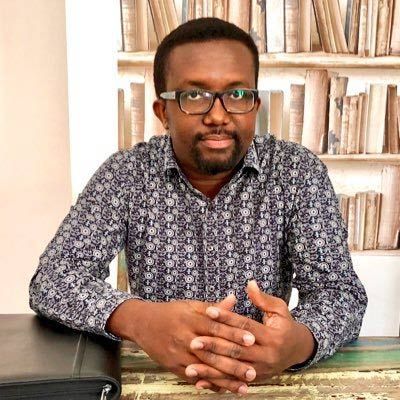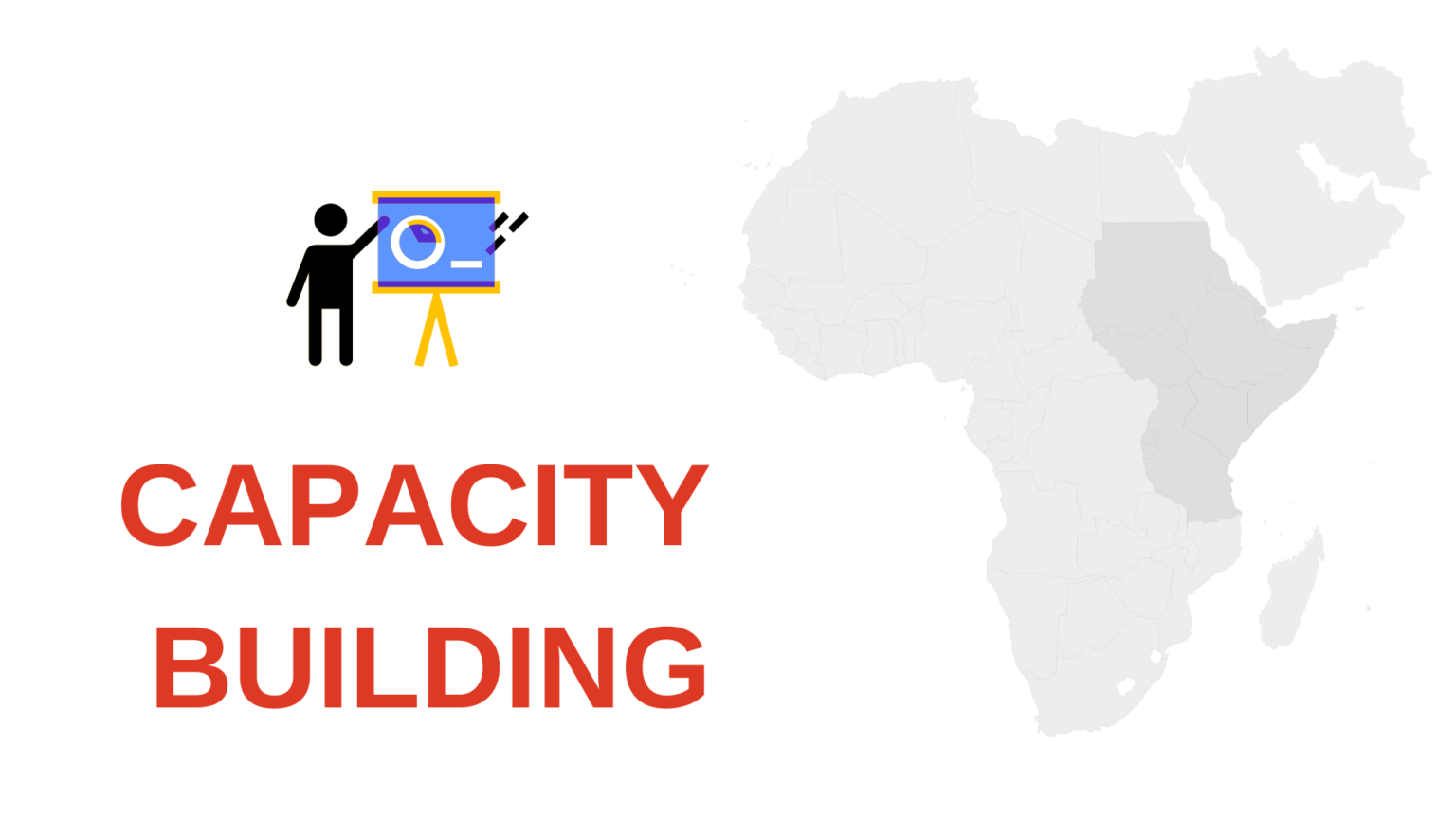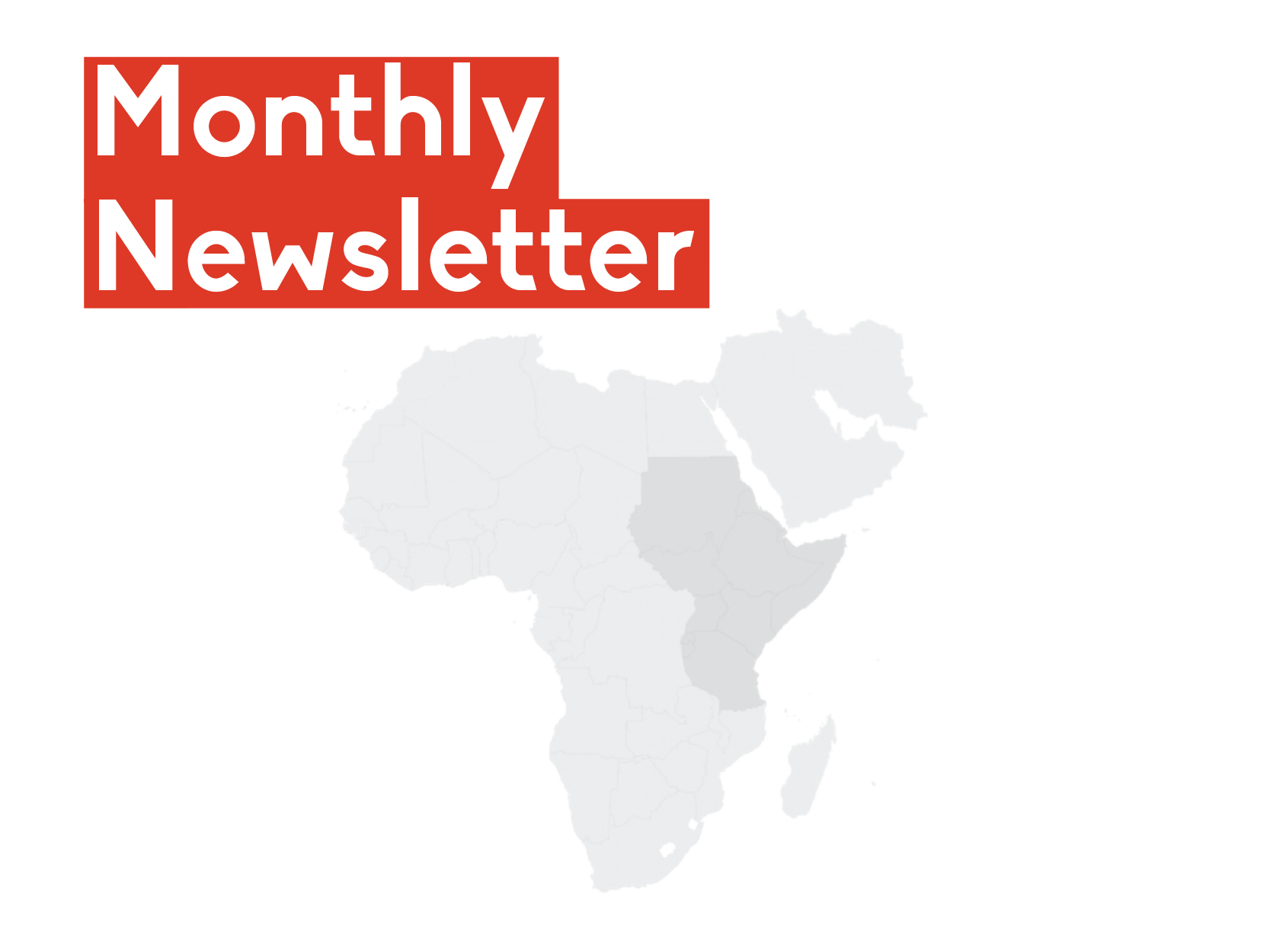Dear friends,
Like the past few months, July barely brought better fortunes for the human rights situation not just in the East and Horn of Africa, but on the continent. On 26 July, the military in Niger overthrew the country’s democratically elected government in a coup, making it the 5th military coup in the Sahel in less than three years. Such unconstitutional changes of government threaten to reverse Africa’s democratic gains over the last few decades and are a worrisome throwback to the continent’s turbulent political history.
Closer home, the conflict in Sudan rages on, now into its fourth month. In July alone, the Armed Conflict Location & Event Data Project (ACLED) reported over 350 political violence events that resulted into more than 1,090 fatalities. Yet rather than scale down the fighting, both sides to the conflict are reported to have launched intense recruitment campaigns to boost their ranks, with the violence now having spread beyond Khartoum to Darfur and the Kordofan regions.
Even in hitherto stable democracies like Kenya, recent political contestations have severely tested the country’s tolerance for civic expression and assembly, claiming tens of casualties in the process. When the law enforcement agencies cracked down on Saba Saba and Maandamano protests, detaining human rights defenders(HRDs) and killing others, DefendDefenders and Defenders Coalition, Kenya, jointly spoke out on the excesses of law enforcement agencies, reiterating Kenya’s obligation to protect and defend the right to freedom of expression and assembly.
At the UN Human Rights Council (UN HRC), we applauded the council’s decision to renew the mandate of the special rapporteur on Eritrea, which will ensure that in the absence of local accountability, the Eritrean government’s excess at home and abroad will remain under strict scrutiny of the international community.
As I observed in my reflections from HRC53, the international human rights system, while not perfect, remains humanity’s best chance at ensuring human rights-centered dignity for all people . To this end, together with other civil society organisations, DefendDefenders welcomed the council’s resolution acknowledging the positive role of civil society and affirming that civil society participation in UN mechanisms is crucial to the preservation of rights for all. As I noted at the end of the recently concluded High Level Political Forum on sustainable Development however, the international human rights system could benefit from greater engagement with civil society especially in New York, where the UN’s multilateral bodies like the General Assembly, the Security Council among others, sit. We will continue to do our part to make such engagements possible.
Hassan Shire,
Executive Director, DefendDefenders,
Chairperson, AfricanDefenders
Human Rights Defender of the Month: OMAR FARUK OSMAN

Omar Faruk’s career, and the passion that drove it, were the product of his circumstances. He was born in 1976, in the first of strong man Mohamed Siad Barre’s two-decade rule over Somalia, which was characterized by gross rights abuses and barely existent civic space. He came of age in the 90s when those abuses and rights violations were peaking, as his country was engulfed by a ruinous civil war following the collapse of the Siad Barre dictatorship.
Opportunities and Recommended Readings:
DefendDefenders Annual Report: Amplifying Voices and Protection for Safety and Wellbeing of Human Rights Defenders
Shelter City Safe Haven for Human Rights Defenders at Risk: Call for applications
Updates from DefendDefenders

From 17 -18, DefendDefenders conducted a SAFETAG Audit for the Coalition of Grassroot Human Rights Defenders in Kenya, to enable them better deliver on their mandate.
From 19 – 21, DefendDefenders conducted a digital wellness check for Feminist for Peace Rights and Justice Centre, a human rights organisation in Nairobi’s Kibera area, in Kenya.

We concluded the 53rd session of the UN Human Rights Council (HRC53). During the session, we met with ambassadors, diplomats, and OHCHR officials, exchanging ideas and comparing notes on human rights and the protection of HRDs in Africa.
The session concluded with the adoption of 30 resolutions, including one, strengthened as we and civil society partners suggested, on Eritrea. In a press release, we highlighted that “Eleven years on, Human Rights Council scrutiny of Eritrea remains vital.” In a podcast released on 31 July 2023, Radio Cité Genève, a (French) Geneva-based radio station, focused on Eritrea and our advocacy efforts – a welcome sign of attention to human rights violations in the Horn of Africa country.
We also seized the opportunity of a debate on Sudan to highlight the need for stronger steps by the international community. We will continue to push for the establishment of an investigative mechanism on violations committed by all parties to the deadly Sudanese conflict.
The next regular session of the Council, HRC54, will take place in September-October 2023. Read our Reflections on HRC53.
For the first time, this year, DefendDefenders attended the High-Level Political Forum on Sustainable Development (HLPF), organized under the auspices of the UN Economic and Social Council (ECOSOC) in New York. We attended official and parallel events, building our knowledge about the HLPF and New York advocacy and our network of partners. Reflecting on the New York/Geneva gap and the place of the UN’s human rights pillar, we released an article on our website.

On 25 July, DefendDefenders participated in the Protection Working Group meeting that was organised by Defenders Coalition Kenya, aimed at sharing information and updates on cases of HRDs at risk in Kenya. The meeting was attended by 11 participants (5 male, 6 female).
From 1 – 31 July, DefendDefenders received a total of 204 requests for support from HRDs at risk. Of these, 58 (28 %) requests were approved (30 from Uganda, 7 from Sudan, 2 from DRC, 13 from Somalia, 6 from Burundi). 18 (9 %) requests were referred to various partner organizations, 84 (41%) requests were rejected, and 41 (21%) requests are still pending verification.
Country Updates:
BURUNDI
The UN Human Rights Committee decried the Burundian government’s decision to walk out of a public dialogue organized to discuss Burundi’s 3rd periodic report, noting that the Government of Burundi had deprived itself of the opportunity to engage with the Committee and provide further information on the issues raised. The dialogue was meant to discuss the implementation of civil and political rights in the country, but the government delegation objected to participating in it in the presence of Burundian human rights activists whom it branded” convicted criminals.”
Members of the World Organisation Against Torture (OMCT) expressed concern about the closure of civic space and the criminalization of HRDs in the country. They highlighted that over a hundred Burundian HRDs are still living and working in exile due to the risk of reprisals. Ahead of the Human Rights Council’s 54th session, to be held in September-October 2023, DefendDefenders and other organisations highlighted the need for ongoing scrutiny of Burundi’s human rights situation, through the Special Rapporteur’s mandate.
ERITREA
In a new report, the Special Rapporteur on the situation of human rights in Eritrea noted that the situation of human rights in the country remains dire. The report particularly pointed out the indefinite and compulsory military service, prolonged and arbitrary detentions and enforced disappearances of critics, and the continued discrimination and persecution of Eritrea’s Afar Indigenous community as some of the issues that continue to undermine Eritrea’s human rights aspirations.
ETHIOPIA
On 12 July 2023, security forces at Addis Ababa Bole International Airport stopped Aba Serekebirhan Woldesamuel, an outspoken critic of the war in the Tigray region, from proceeding with his journey to Mekelle, the capital of the Tigray region, for unknown reasons. An Orthodox Priest and until recently, the Head of the Education Training Department at the Ethiopian Orthodox Tewahedo Church (EOTC), Serekebirhan as suspected of being involved in a planned nomination of 10 Archbishops for dioceses under the newly established See of Selama Kessate Berhan Archdiocese of the Tigray Orthodox Tewahedo Church, which the Ethiopian Orthodox Tewahedo Church’s Holy Synod in Addis Ababa opposes.
On 19 July 2023, Prime Minister Abiy Ahmed, along with Ethiopia’s Council of Ministers, passed a new draft bill that aims to regulate the management and use of classified government information. The Bill, known as the Security and Information technology Products Certification and Control Bill seeks to “prevent and control the negative impacts of information technology products entering and leaving the country,” a framing which rights groups say effectively amounts to censorship. Moreover, there are fears that the Bill did not pass through the customary regulatory channel of the House of People’s Representatives (HoPR) as required before approval, with a statement from the Prime Minister’s Office only stating that “after extensive discussion on the draft regulation, the Council unanimously decided to make it effective from the day it is published in the Negarit Newspaper.”
KENYA
The Kenyan Section of the International Commission of Jurists (ICJ Kenya) condemned Kenya’s National Police Service for using excessive force against protestors and arresting human rights defenders who participated in the nationwide SabaSaba marches. In a statement, ICJ Kenya noted that it had witnessed excessive force used by security officials, including tear gas, water canisters, and batons against peaceful Kenyans, and argued that such actions were in violation of Kenyans’ rights to freedom of expression, peaceful assembly, and association, as enshrined in the Kenyan Constitution and other regional and International Human Rights Instruments
Human Rights Watch condemned statements made by senior members of the Kenyan Government threatening lawful protestors with violence, noting that they’re obligated to guarantee citizens’ right to assembly and protest. The condemnation followed remarks made by President William Ruto, Interior Cabinet Secretary Kithure Kindiki and Trade Cabinet Secretary Moses Kuria, warning that “it will not be business as usual” for participants in the cost-of-living protests organized by the Opposition Azimio Coalition.
SOMALIA
Between 24 June to 21 July 2023, the Armed Conflict Location & Event Data Project (ACLED) recorded almost 200 political violence events and nearly 480 fatalities in Somalia, with Lower Shabelle, Banadir, and Lower Juba regions being the epicenter of the violence. The data collected by ACLED noted that attacks by Somali security forces operations against al-Shabaab militants accounted for over 70% of the reported fatalities, with Lower Juba region having the highest number of fatalities.
The UN Office for Cordination of Humanitarian Affairs (OCHA) reported that at least 50 per cent (8.25 million people) of Somalia’s population needs humanitarian assistance, with 6.6 million facing acute food insecurity and 1.8 million children likely to be acutely malnourished by the end of 2023. The OCHA notes that Somalia’s Humanitarian Response Plan that seeks more than US$2.6 billion to meet the priority needs of 7.6 million people, is only 30.5 per cent funded as of mid-year, warning that the shortage in funding is likely to cause a large number of casualties.
SOUTH SUDAN
In a letter to South Sudan’s Revitalised Transitional National Legislative Assembly, Amnesty International and Human Rights Watch called upon the legislative body to revise the National Security Service Bill to do away with what they called “broad and unqualified” powers the bill gives to the National Security Services(NSS). Among the highlighted provisions is the broad definition of “crimes against the state,” and a provision that grants the NSS to issue permission for holding public meetings.
SUDAN
The heads of the UN Office for the Coordination of Humanitarian Affairs (OCHA), the UN Human Rights Office, the UN Refugee Agency (UNHCR), the UN Children’s Fund (UNICEF), the UN Population Fund (UNFPA), UN Women and the World Health Organization (WHO) voiced shock and condemnation at increasing reports of gender-based violence in Sudan – including conflict-related sexual violence against internally displaced and refugee women and girls – since fighting broke out in Sudan, in April. The UN Human Rights Office in Sudan reported to have received credible reports of 21 incidents of conflict-related sexual violence against at least 57 women and girls, while the Unit for Combatting Violence against Women under Sudan’s Ministry of Social Development noted that it had documented at least 42 alleged cases in the capital, Khartoum, and 46 in the Darfur region, with 20 women reportedly raped in one incident.
The Armed Conflict Location & Event Data Project (ACLED) recorded 320 political violence events and approximately 880 reported fatalities in Sudan between 17 June to 14 July 2023, with at least 80 of these incidents targeting civilians, and resulting in over 220 reported fatalities. The ongoing war between the Sudanese Armed Forces (SAF) and Rapid Support Forces (RSF) has now reached its fourth month, resulting in a devastating loss of life – with thousands killed and over three million displaced.
UGANDA
Uganda’s High Court ordered Frank “Kaka” Bagyenda, the former Director General of the country’s Internal Security Organization (ISO, and 14 ex-security personnel to compensate Musa Nsereko 175 million Ugandan shillings (about US$47,000) for torturing and illegally detaining him for over a year without charge. The court also awarded Nsereko an additional 100 million Ugandan shillings (about $27,256) for violations of his right not to be subjected to torture or cruel, inhuman or degrading treatment under Uganda’s constitution and its binding obligations under international human rights law.

